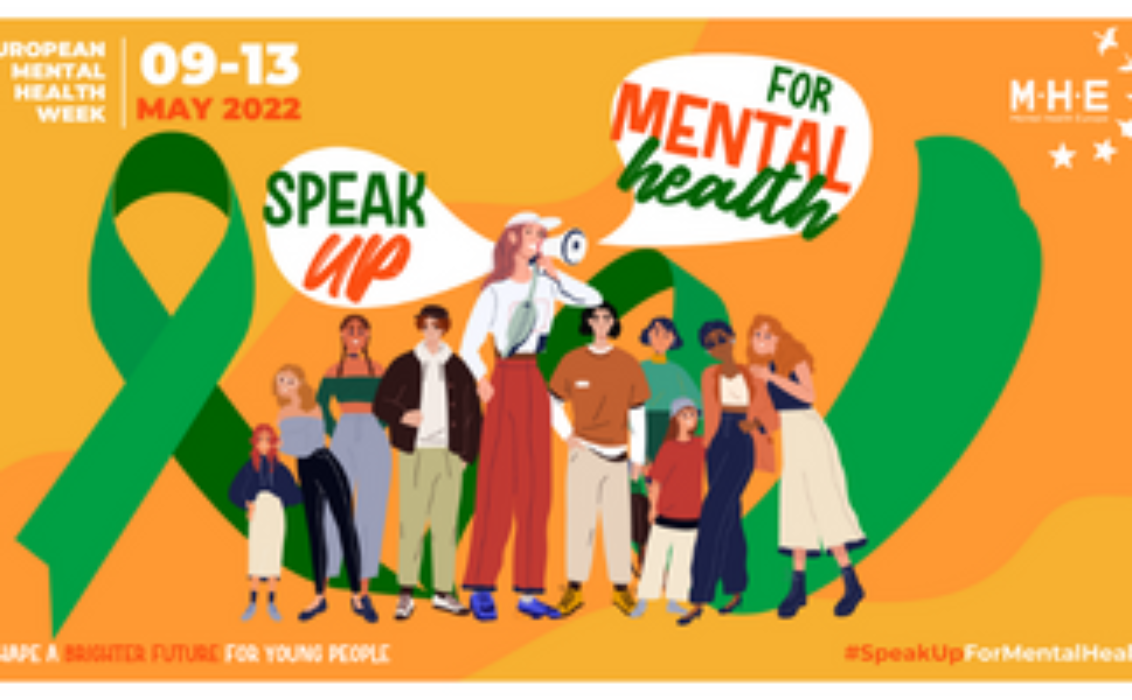Mental Health Europe (MHE) is launching its third edition of the pan-European initiative “European Mental Health Week” to raise awareness about the importance of mental health in our everyday lives.
Diabetes is a complex disease. It is a progressive condition that demands round-the-clock self-management throughout the course of a person’s life. Its impact on mental health is heavy. People living with diabetes (PwD) may at times experience increased levels of distress, anxiety, and depression. Not only does this affect one’s everyday life, relationships, and emotional state but it can also negatively impact a person’s ability to manage their diabetes leading to poorer physical health. Studies have also shown that people living with diabetes are 2 to 3 times more likely to experience depression than people who do not live with diabetes. Currently, only 25-50% of people living with diabetes who have depression get diagnosed and treated for it. This is an alarming figure.
We all agree that “it is okay to not be okay”. But what does this really mean? What is put in place to reduce stigma, provide support and improve quality of life and wellbeing? Is there any sustainable framework in place for people to speak – about mental health issues and cope with the various challenges and burden of diabetes, mentally? There is an expanding evidence base demonstrating the benefit of a range of interventions that support psychological wellbeing and reduce psychological morbidity for people with diabetes [i]. These include: structured patient education, peer-to-peer support, motivational interviewing, psychological support and treatment, among many other options. Effective psychological and mental support on the diabetes care pathway should be seen as a priority.
This year MHE is specifically shining a spotlight on youth mental health encouraging people to #SpeakUpForMentalHealth.
In most European countries, mental health problems among young people (15–24-year-olds) have doubled in the last two years as a consequence of the pandemic. Young people constitute an especially vulnerable group. At IDF Europe we support this initiative and call for immediate action at European and national level to address the mental health needs of young people in Europe.
Youth are effective change-makers if given proper rights and opportunities to engage. IDF Europe strongly believes that youth engagement is critical to build a stronger diabetes community and create a brighter future for all, including PwD.
Therefore, we are proud of our vocal youth to share their stories and #SpeakUpForMentalHealth.
Read more about their stories below!
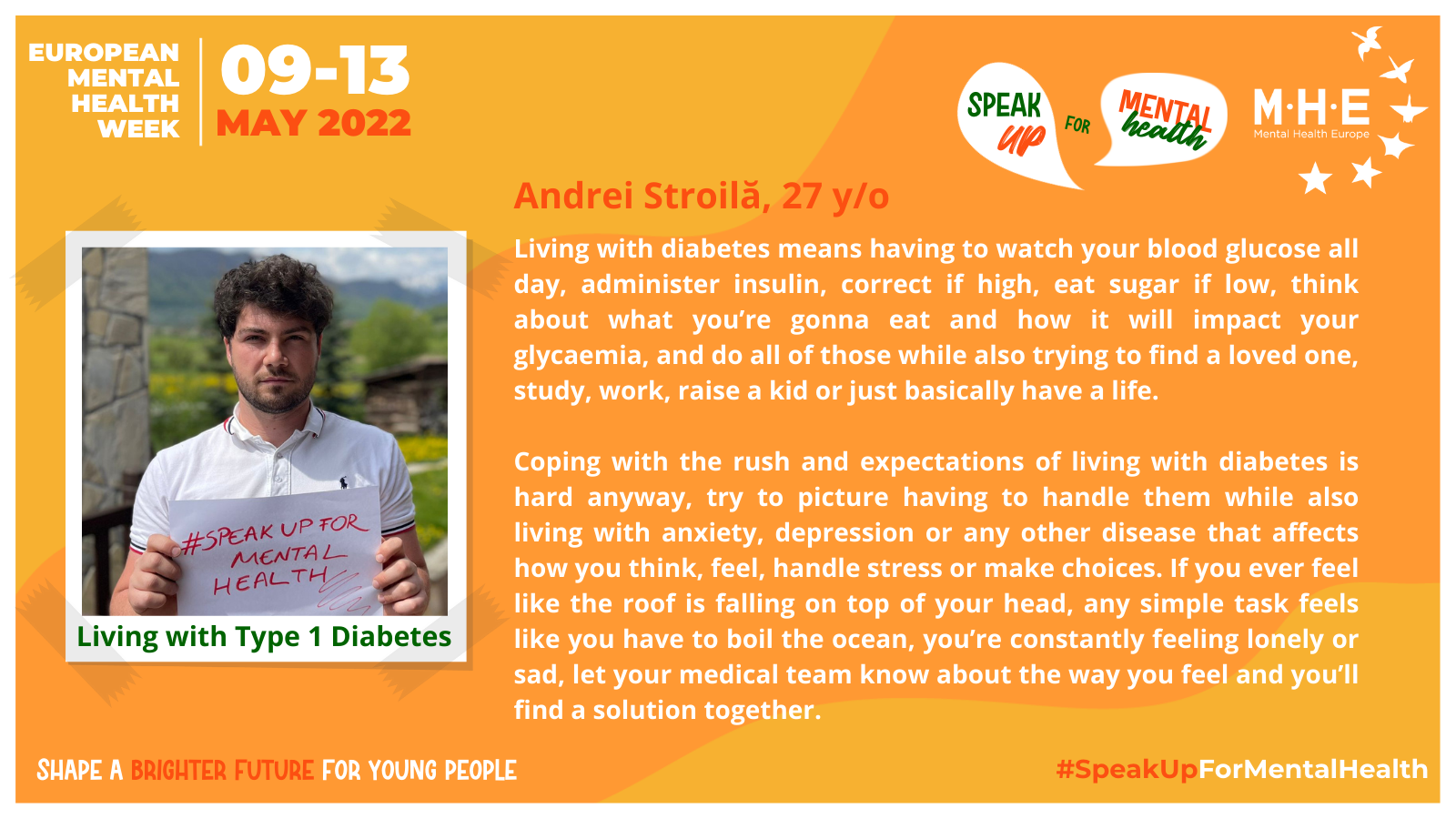 |
||
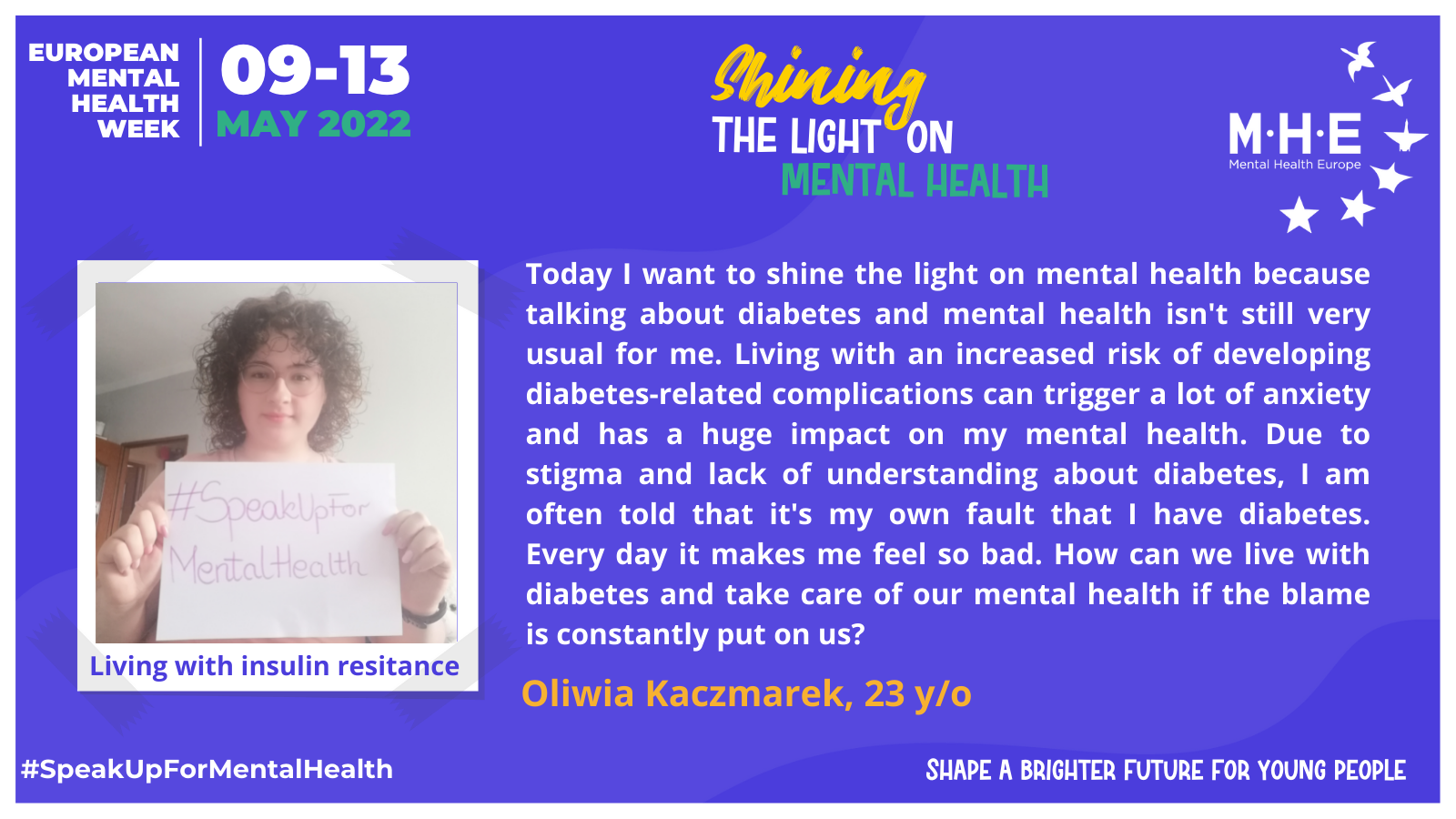 |
||
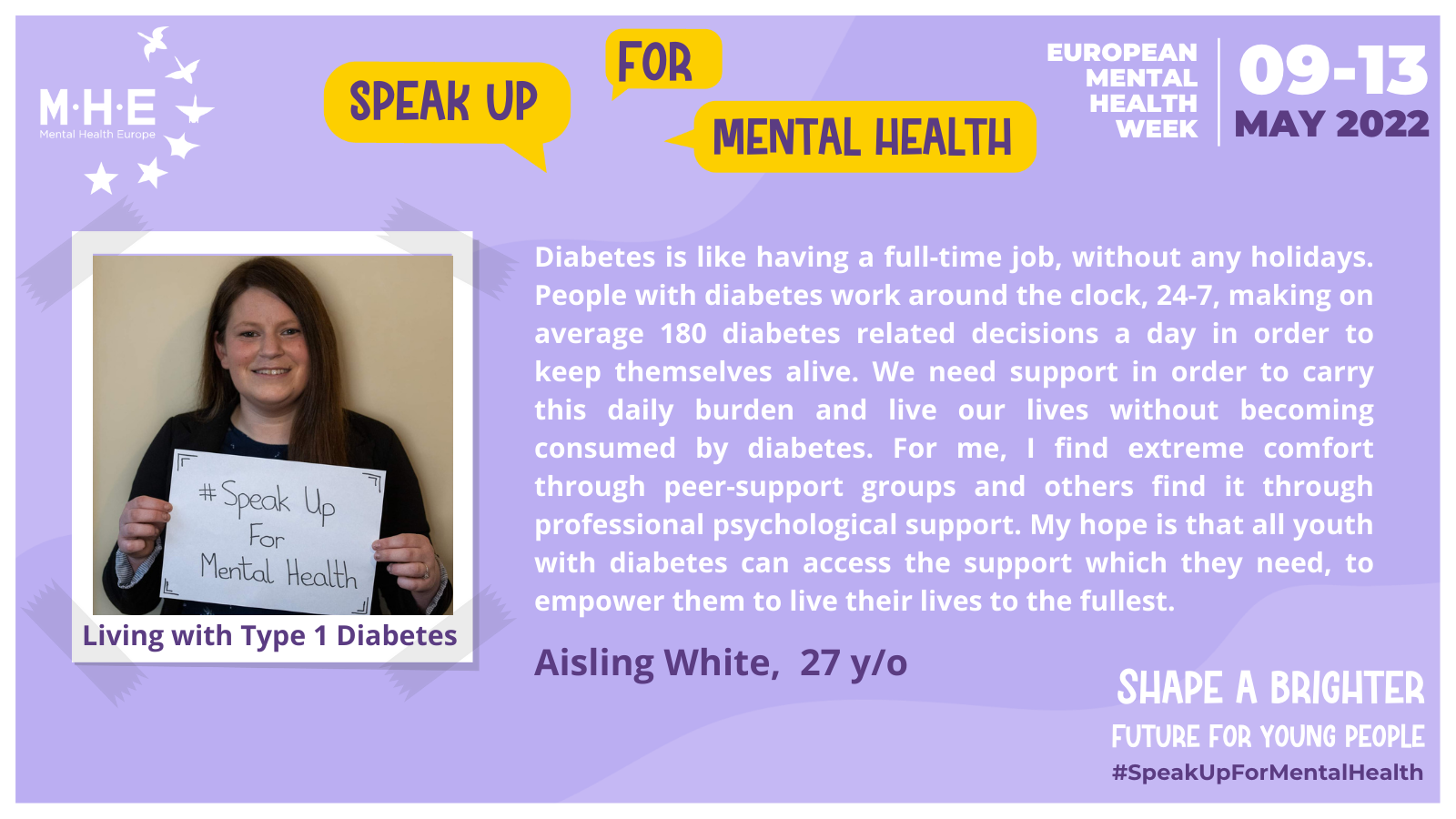 |
||
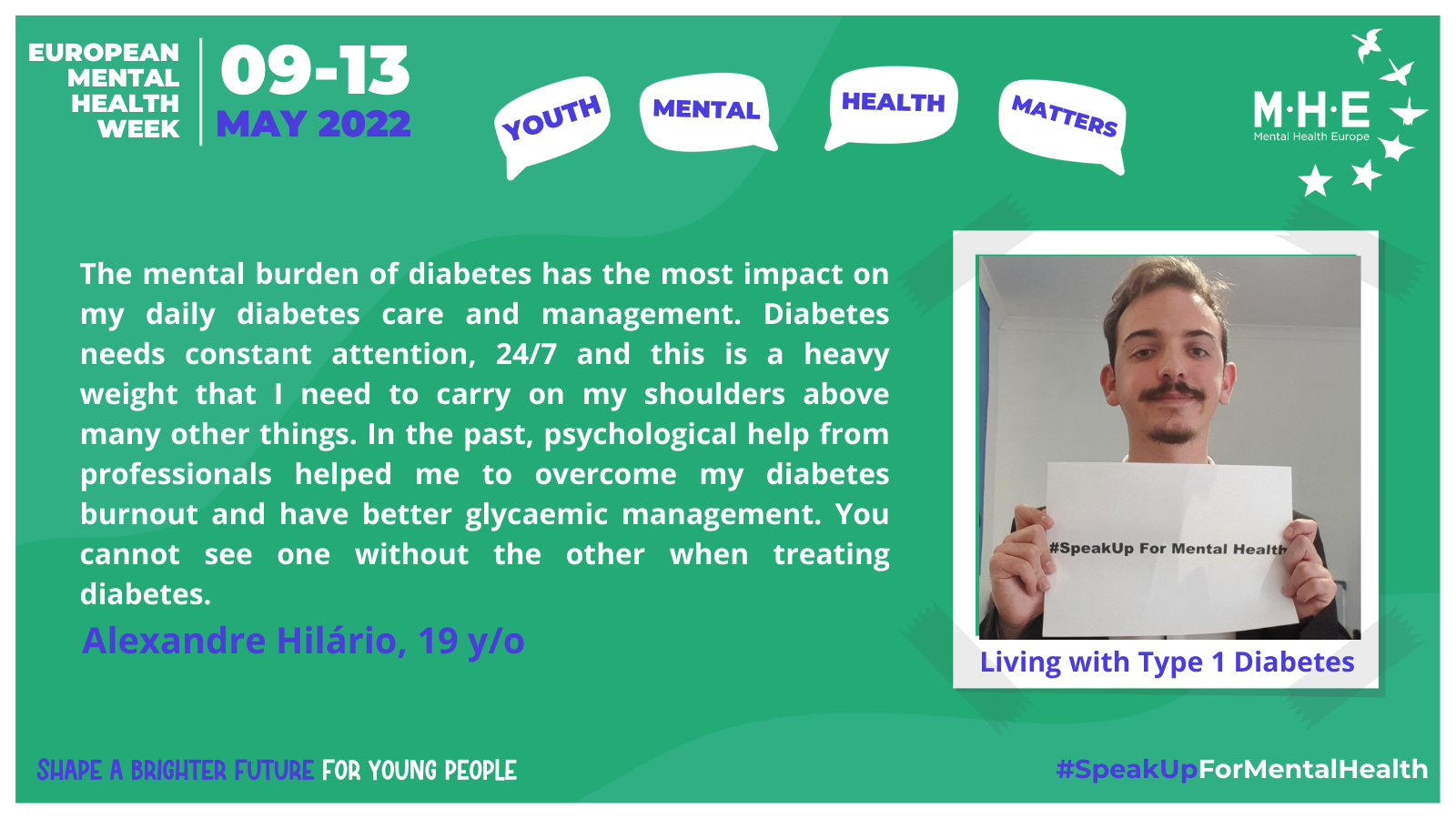 |
||
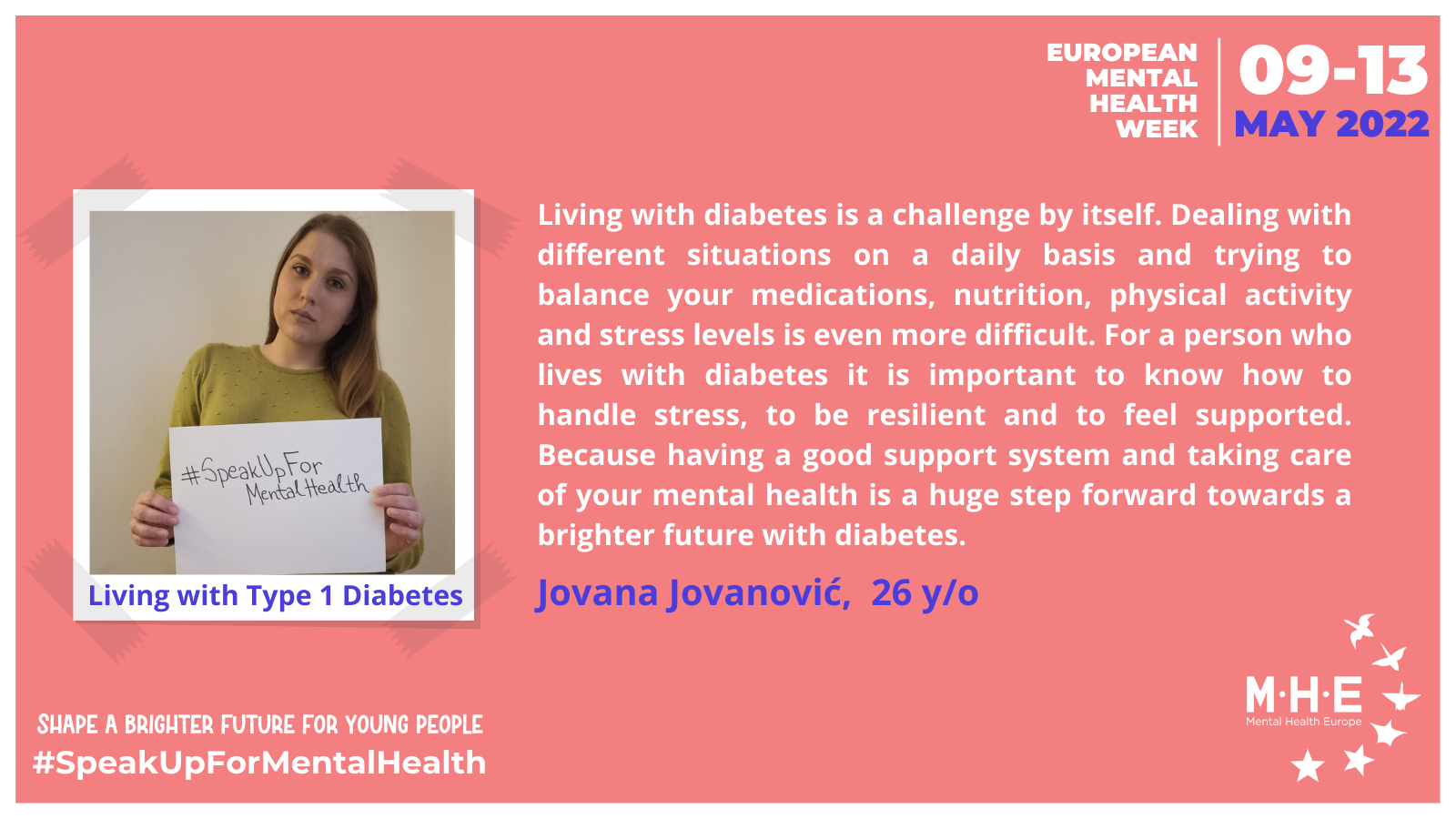 |
[i] https://www.healthwatchbarkinganddagenham.co.uk/sites/default/files/mental_health_and_diabetes.pdf
